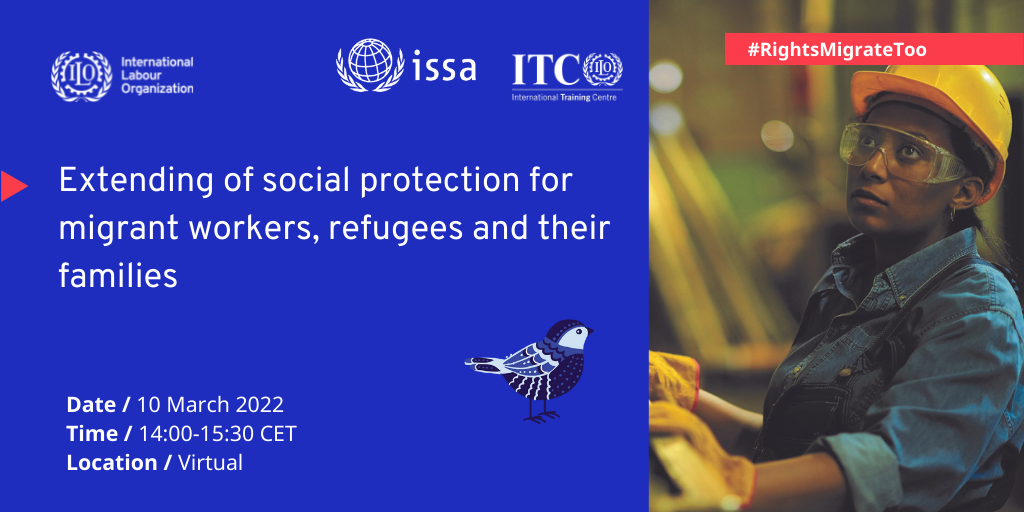Social Protection for Migrant Workers, Refugees and their Families
ILO-ISSA Webinar on Extending Social Protection for Migrant Workers, Refugees and their Families – Guide for policymakers and practitioners
The International Labour Organization (ILO) and the International Social Security Association (ISSA) brought together more than 850 practitioners, policy-makers, researchers and the international community from over 130 countries to present the Guide on Extending Social Protection to Migrant Workers, Refugees, and their Families and country practices from Argentina, Morocco and Portugal.
The Guide on Extending Social Protection to Migrant Workers, Refugees, and their Families is intended to provide policymakers and practitioners, including workers’ and employers’ representatives, with practical guidance on how to extend social protection to migrant workers, refugees and their families. The Guide calls for the design and implementation of nationally appropriate and inclusive social protection systems, but also the portability of benefits across countries. It stresses that failure to address social protection gaps comes at a very high political, economic and social costs, it hinders countries’ development efforts and, most importantly, contradicts human rights and universal values.
In 2022, the stark reality is that some 4 billion people have no social protection at all. The pandemic has revealed the existing gaps in social protection especially for vulnerable groups and it has shown the importance of comprehensive and inclusive social protection systems. Social protection guarantees access to healthcare, ensure income security and protect jobs and people. It is crucial to realize the right to social security for all, including for migrant workers, refugees and their families.
Webinar discussions provided insights on the administrative and policy options available to extend social protection to migrant workers, refugees and their families, taking into account the complexity of current migratory movements. The panellists shared their insights drawing on their country experiences.
The recording of the webinar is available in English, French and Spanish.

In 2022, the stark reality is that some 4 billion people have no social protection at all. The pandemic has revealed the existing gaps in social protection especially for vulnerable groups and it has shown the importance of comprehensive and inclusive social protection systems. Social protection guarantees access to healthcare, ensure income security and protect jobs and people. It is crucial to realize the right to social security for all, including for migrant workers, refugees and their families.
Webinar discussions provided insights on the administrative and policy options available to extend social protection to migrant workers, refugees and their families, taking into account the complexity of current migratory movements. The panellists shared their insights drawing on their country experiences.
The recording of the webinar is available in English, French and Spanish.
